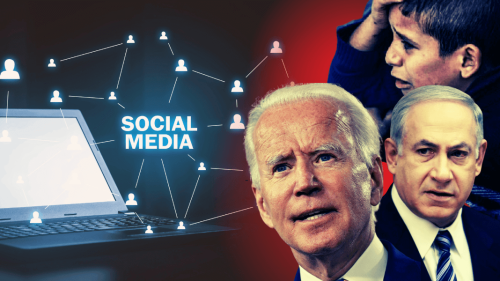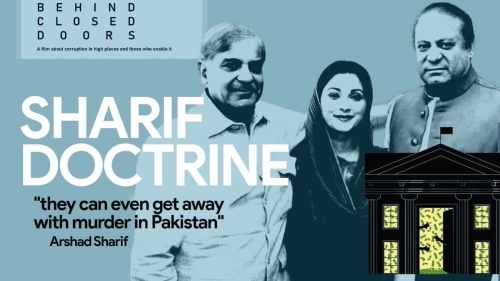Terrorized by terrorism "experts"
Last week, U. S. District Judge Joan Lenard ruled that the use of secret evidence violated the rights of Dr. Mazen Al-Najjar. The use of secret evidence was legalized in 1996 by the Anti-Terrorism Act. The legislation, which many civil libertarians have opposed, was a reactionary response to the Oklahoma City bombing in 1995.
Judge Lenard's decision was like a breath of fresh air for civil libertarians and Muslim/Arab activists. Indeed, the Council on American Islamic Relations (CAIR) even put out a "good news" alert. But before we get excited, we must first sit back and evaluate some of the other recent developments in the fight against terrorism in North America.
This trend of overacting first codified in the Anti-Terrorism Act is continuing and has even influenced some authorities north of the border. The tactics employed in both the authorities in the United States and Canada appear to be based on false assumptions, stereotypes and bias.
As if timed to dampen the excitement over the pronouncement in Dr. Al- Najjar's case, the National Commission on Terrorism (NCT) released its long-awaited recommendations this week. Even at this preliminary juncture, civil libertarians have expressed concern over many of the recommendations. They include tracking of international students in America, allowing the military to lead the way in responding to domestic terrorism, relaxing CIA and FBI rules and regulations in investigating alleged terrorists, co-operating with criminal informants and tightening controls on fundraising for "terrorists."
At first glance these new restrictions are seemingly in the best interest of the United States, but closer examination will reveal that the conclusions are clearly overkill and will unfairly impact Muslims and Arabs. Hala Maksoud, president of the American-Arab Anti-Discrimination Committee, said the recommendations, if implemented, "would severely damage civil liberties and facilitate abusing behavior by the government, without necessarily producing any increase in security."
In Canada, a similar trend is evident from the public pronouncements of the director of the Canadian Security Intelligence Service (CSIS). A couple of years ago, CSIS director Ward Elcock dropped a bombshell on the immigrant communities (Muslims, Arabs, Tamils, Sikhs, Irish, etc.) by testifying to a Senate committee, that "we know that the infrastructure has been established here to support a terrorist act in Canada." More recently, his spokesperson Dan Lambert told the Toronto Star that "with the exception of the United States, there are more terrorist groups active in Canada than perhaps any other country in the world."
Elcock made his boldest statement to date during an interview with a reporter from the National Post, saying, "Islamic extremists are now considered the leading threat to Canada's national security."
However, Elcock's statements have come under fire by critics and commentators who say his claims are exaggerated and unsubstantiated. In fact, on the day before his National Post interview, CSIS had released a report titled "International Terrorism: the Threat to Canada" (CSIS Report #2000/04, http://www.csisscrs.gc.ca/eng/miscdocs/200004e.html) which did not support his claims.
"The report contains no mention of "Islamic extremists." Instead, it categorizes numerous political conflicts with roots elsewhere in the world that are sometimes imported into Canada," said Sheema Khan, director of the Council on American Islamic Relations (CAIR - Canada).
Why the discrepancy between the official report and statements by Elcock? There are a number of reasons, including the need to create an enemy, real or imagined, in order justifying funding for the CSIS. With respect to Muslims and Arabs, "evidence" to support such bold statements has been crafted by individuals and organizations having a vested interest in portraying these two communities as threats.
Just as in the U.S., Canadian authorities have accepted the unsubstantiated claims advanced by such self-styled terrorism "experts" as Steven Emerson, Edward Luttwak, Danial Pipes, Yousuf Bodanski and Yehudit Barsky.
Sadly, their ranting and hate mongering have not only attracted followers in the U.S. but in Canada as well. Daniel Pipes' articles attacking Islam and targeting Muslims appear regularly in the National Post, a publication that has been deemed the most anti-Muslim newspaper by the Canadian Islamic Congress, and a number of other publications owned by pro-Zionist press baron Conrad Black.
An article written by Pipes once concluded by warning Canadians to be careful of Muslims in the country. Emerson is regularly cited as an "expert" and has even testified in a Canadian hearing for the deportation of a North African Islamist. More recently, Emerson spoke at a Montreal Synagogue and used the opportunity to create fear about Islam and Muslims.
In the wake of the arrest of Ahmed Ressam, an Algerian national who was apprehended by U.S Customs in December of 1999 for transporting illegal explosive materials across the Canadian border, Luttwak, wrote in the Los Angeles Times that the U.S.-Mexico border can be crossed easily but it was unlikely that Muslim terrorists would use this route because unlike Canada, Mexico did not have a "welcoming community of Muslim Immigrants of any size."
Luttwak, a senior fellow at the Center for Strategic and International Studies in Washington, went further to suggest that security is lax in Canada "because politically correct Canadians do not differentiate between 76-year-old Madame Dupont coming to visit her grandchildren and bearded young men from Islamic countries." The ridiculous assertion is that all Muslims in Canada are terrorists or sympathizers and that bearded young men are terrorists. The recent statements coming from CSIS headquarters and even the NCT recommendations suggest that Luttwak's hate propaganda has won some converts.
Sadly, in Canada, members of the Jewish community have been actively promoting these so-called experts. A couple of years ago B'nai B'rith Canada hosted a speech by Yehudit Barsky, senior Mideast research analyst for the Anti-Defamation League of B'nai B'rith. The League's hatred of anti-Israeli voices is no secret. The League has been convicted of spying illegally on Arab Americans, Muslim Americans, and anti-apartheid and peace activists in the U.S. Yehudit told the audience that groups like Hezbollah, Hamas and Islamic Jihad not only operate in Canada but do so freely as social welfare and charity groups, mosques and clubs.
"There are quite a few of these fronts," she told the group of Jewish leaders in Toronto. "They can go about their business quietly."
Unfortunately, government and law enforcement officials in Canada and the U.S. have bought into these ideologically motivated arguments blindly. The dangerous consequences of such generalizations are violations of fundamental rights and restrictions on peaceful activities of targeted communities. Already many Muslims are afraid to exercise the fundamental freedom to express themselves on issues that may get them targeted. Indeed, humanitarian organizations raising badly needed finances for relief work in the Muslim world have already suffered greatly in both Canada and the U.S.
The squeeze may get even tighter in Canada if a proposal floating around Parliament is accepted by the legislature. The proposal put forth by a former solicitor general, Andy Scott, called for the stripping of charity status of organizations suspected of being fronts for terrorists. The new legal process whereby charity status could be revoked in closed hearings before the Federal Court (where even the charity's lawyer cannot see the evidence) was opposed by a number of parliamentarians but has been revived again after the arrest of Ressam.
Muslim,s and Arabs don't have a problem with ensuring that terrorists and their activities don't get funded. The concern is the potential for abuse of such rules and the unfair targeting, which usually result from such measures.
In fact, Revenue Minister Herb Dhaliwal, a Sikh, openly disagreed with Scott when the new process was first proposed. He told reporters that he has not seen any evidence of charities raising funds for terrorists overseas. Dhaliwal wisely saw the potential for abuse. The process would violate the presumption of innocence and right to counsel as well as the right to know the case against you.
After praising the secret evidence legislation, Barsky's final advice on how to fight support for terrorism in Canada was "not to give in to the notion that changes to laws will make you less democratic." It seems clear that more and more government officials are subscribing to her line of reasoning.
Faisal Kutty is a Toronto-based lawyer and writer. He is also a columnist for the Washington Report on Middle East Affairs (http://washington-report.org), and a regular contributor to Iviews.com.
Topics: Canada, Government And Politics, Oklahoma City Bombing, Terrorism
Views: 2470
Related Suggestions

















